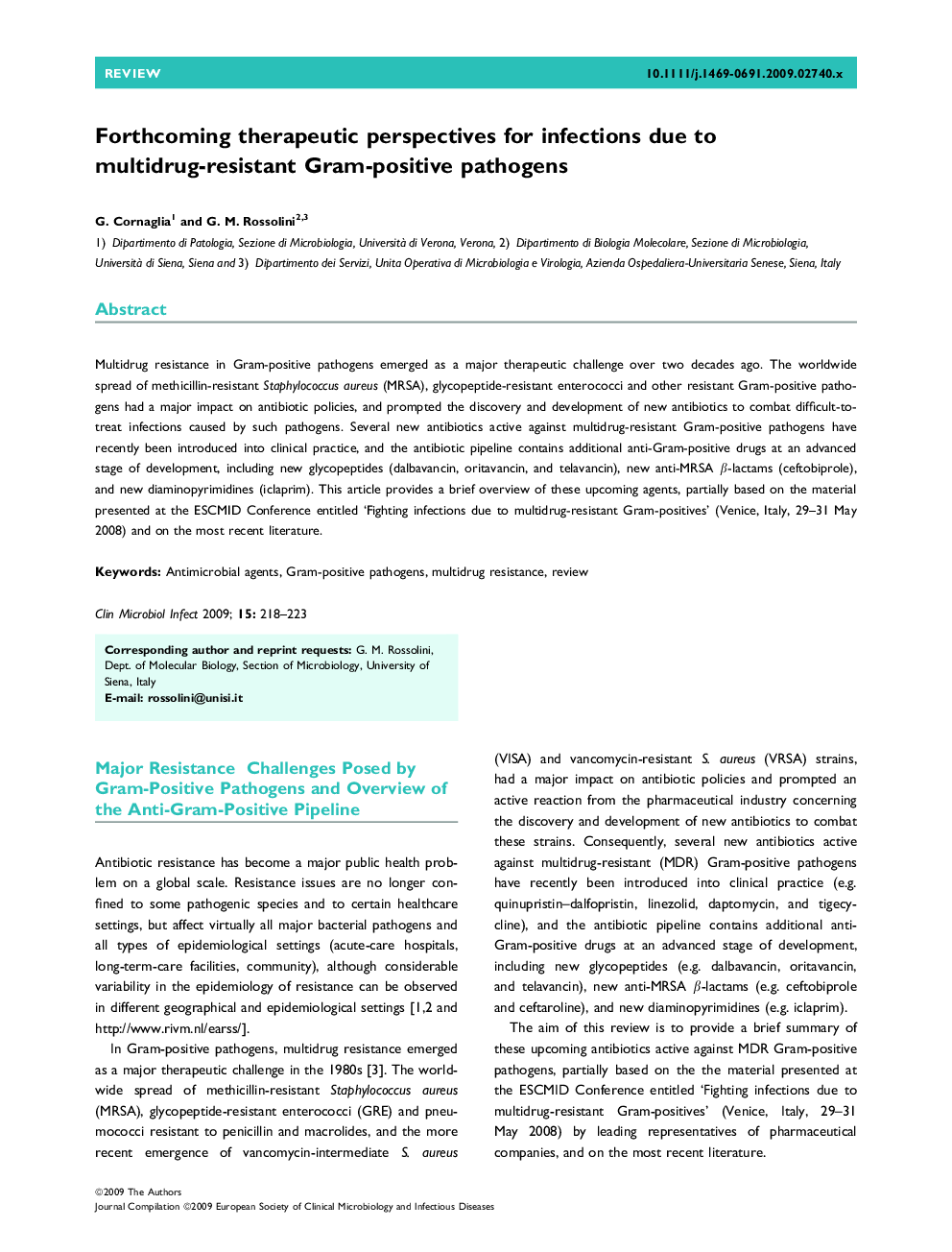| Article ID | Journal | Published Year | Pages | File Type |
|---|---|---|---|---|
| 3398323 | Clinical Microbiology and Infection | 2009 | 6 Pages |
Multidrug resistance in Gram-positive pathogens emerged as a major therapeutic challenge over two decades ago. The worldwide spread of methicillin-resistant Staphylococcus aureus (MRSA), glycopeptide-resistant enterococci and other resistant Gram-positive pathogens had a major impact on antibiotic policies, and prompted the discovery and development of new antibiotics to combat difficult-to-treat infections caused by such pathogens. Several new antibiotics active against multidrug-resistant Gram-positive pathogens have recently been introduced into clinical practice, and the antibiotic pipeline contains additional anti-Gram-positive drugs at an advanced stage of development, including new glycopeptides (dalbavancin, oritavancin, and telavancin), new anti-MRSA β-lactams (ceftobiprole), and new diaminopyrimidines (iclaprim). This article provides a brief overview of these upcoming agents, partially based on the material presented at the ESCMID Conference entitled ‘Fighting infections due to multidrug-resistant Gram-positives’ (Venice, Italy, 29–31 May 2008) and on the most recent literature.
